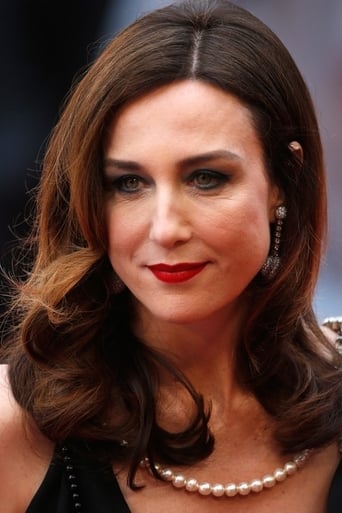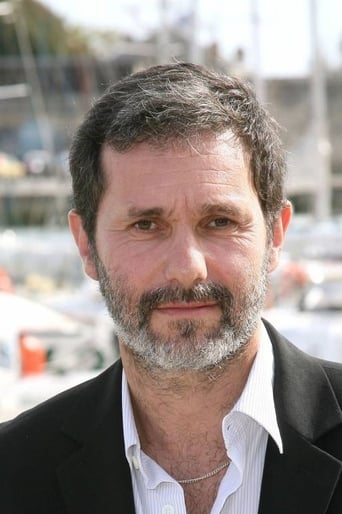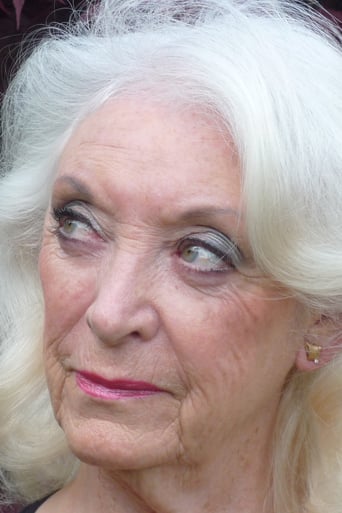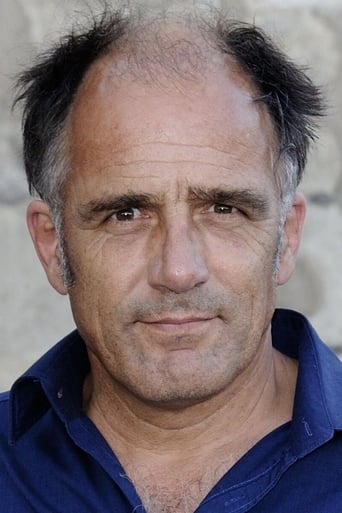Phonearl
Good start, but then it gets ruined
Chirphymium
It's entirely possible that sending the audience out feeling lousy was intentional
Freeman
This film is so real. It treats its characters with so much care and sensitivity.
Raymond Sierra
The film may be flawed, but its message is not.
Gordon-11
This film tells the story of a woman who is reunited with her sister after fifteen years in prison."I've Loved You So Long" starts off wooden and plain, as Juliette needs time to readjust to the life outside prison. Slowly, she warms up to her new environment, and people around her warm up to her. Initially we don't know why Juliette has been away for so long, we only find out as the story unfolds slowly. I really like the story telling in this film. The ending is great too, as it really exposes the pain of a mother who is consumed with guilt. She hopes for absolution, and the only way to do that is to go to prison.The story of "I've Loved You So Long" is very engaging. Kristin Scott Thomas gives a great performance too, and she literally look younger and more radiant as the film progress. I enjoyed watching this film.
George Wright
This is one of the most powerful movies I have seen in a while. I was hugely impressed by the acting of Kristin Scott-Thomas, as a woman who returns to society after 15 years in prison. Her sister opens up to her after years of separation and gives her a chance to recover her lost dignity. The interaction between the sisters is well portrayed. It is honest and loving but difficult. The sister's husband is less forgiving but Scott-Thomas does not allow them to see for themselves the tragic story she has experienced. The interaction with her sister's family is joyful, particularly as she teaches her nieces to read and play music. Even the moments she spends with her brother-in-law's ailing father are tender and beautiful. Eventually the movie reaches a point where the full story cannot be concealed any longer. The outcome is one we can hardly anticipate until we begin to see clues that the sister pursues relentlessly. The movie gives us the story of a woman who has lost her self-esteem but gradually regains it as she works through the quagmire after years of isolation. The sister and her spouse, a comfortable couple who are flawed but trying to do their best for their family, are a tremendous help to her and she eventually becomes a trusted member of the family. She becomes part of the family's social life and is able to build personal relationships of her own, which have consequences that are both rewarding and heart-breaking. All these blend together to tell a compelling story that is honest and fulfilling. The entire cast is excellent. It is an interesting context and the plot keeps our attention to the dramatic finale.
stephanlinsenhoff
Il y a longtemps que je t'aime. Juliette leaves prison after 15 years: received at the airport by her sister Lea, for a time as guest with her colors-of-Benetton-family. Slowly we learn what happened: a gesture, a look, a word here, a sentence there. But only in the last movie minute we are told what happened, a help to die. Who decides this gesture of termination: the Greek cliff of Tarpeia, the vikings look at the newborn, Martin Luther, Adolf Hitler or todays brain scanning of the unborn: "Rich prospective parents can already afford to have their unborn child's brain scanned for traces of possible future mental weakness"; S Zizeks 2010-345. A few people in the movie seem to 'understand' Juliette. But do not. One example is her probation officer, a victim of committed suicide. Does he sense her real reason of the murder, not told the why? The reason lies under Juliette's pillow: by chance of hurry falling onto the floor and picked up by the younger of the two adopted children: like this Lea gets to know the happened truth. Also the man of respect, Michel, does he really know, having teached prisoners, 'how it is': does he? Does grandfather Papy Paul, lost his speech of power: has silence a possibility of understanding? The most honest is the man, willing to give her the first work. But: "Get out of here", when she answers: "I killed my child". At the cheerful dinner party she is asked where she had been all the years: "In prison", responded with hysterical laughter of social sadism. As we do not know the truth until the last moment, we share Lucs, the fathers fear: will Juliette commit a second murder, one of the girls? The explaining end is for the sister and us an explanation but no answer. Has she permission and who gave her the permission to ease her and her sons pain with the help of death. In Juliettes case her son could not ask. Juliette: "The worst prison is the death of one's child. You never get out of it" She did not defend herself at the trial: sentenced for the 15 years. The German discussion after the hadamartime of 1945, when (again) was proposed this time for a 'begrenzte' Euthanasie (W Catel Nuernberg 1962) is a journey between Scylla and Charybdis. At its core it is an individual question of the voice of conscience. Wallis Simpsons grandmother advised: "Concience is like a mirror you must look into it at least once a day", quoted in the Edward Morrow 1965 television interview. As long we are able to contact this organ that helps not only to know but to know that we know. What has to change basically is our attitude (a good example of change on its way is Peace Corps. They search and practice at the core of themselves to renew the basic of humanity – beyond where they mirror themselves in those who are everything else but able, outcasts). But as long disability is a case of pity and false goodness and not a mirror for development for each other – the pity of the Juliettes never can be true interest. In gratitude Karl König 1902-166, a fighting for runner against the 'soft' death. Il y a longtemps que je t'aime.
littlevoiceinspace
For the first 60 minutes or so I was really enjoying this. Then it slowly started to head towards contrivance and the pat explanations and last minute twist more beloved of Hollywood than serious European cinema. I felt as if the director (first-timer Philippe Claudel) was losing his nerve. It isn't necessary to explain everything, and everything isn't open to explanation anyway. The ending here pulled the rug out from under what had been building to a fine, bleak conclusion. It was also a contrivance that worked against the downbeat realism that had been built up so far. On the plus side, the acting was consistently superb. Kristin Scott Thomas gives a brave, honest performance - unafraid of portraying a deeply flawed and damaged individual. Special mention to Jean-Claude Arnaud as the stroke victim grandfather, he almost steals the film out from under Scott Thomas without saying a word - a masterclass in (silent) acting. The photography was another major plus: a calm, gently probing camera that watched but refused to judge.I'm certainly glad I watched it and don't think it's a bad film at all. If I had missed the last 15 minutes I think I would rate it 8 rather than 6.





